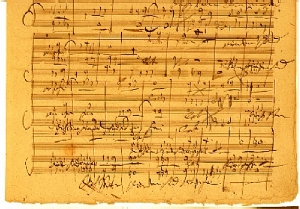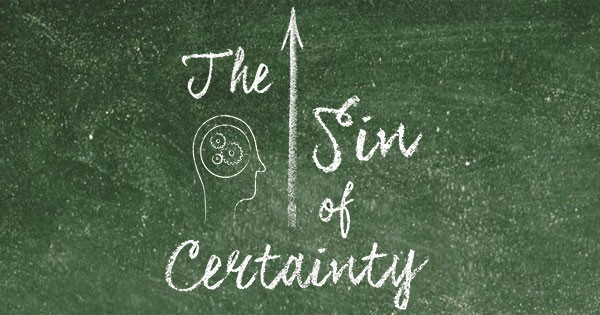Total Truth: Liberating Christianity from Its Cultural Captivity
 Rereading Total Truth for the first time in about 10 years has been both a rich and a worrisome journey. Revisiting my review from 2008, I see that it didn’t do this astonishingly meaty book justice. This review won’t either — but it will add something, at least: another layer of appreciation for Nancy Pearcey’s scholarship and instruction, another layer of urgency about trends that have only picked up momentum since last time. First published in 2004, the book begs for a revised edition with updated applications to the present day. But since so much of it consists of laying a philosophical, theological, and historical groundwork for understanding the condition of Christianity in American culture, it remains a bracing, relevant book.
Rereading Total Truth for the first time in about 10 years has been both a rich and a worrisome journey. Revisiting my review from 2008, I see that it didn’t do this astonishingly meaty book justice. This review won’t either — but it will add something, at least: another layer of appreciation for Nancy Pearcey’s scholarship and instruction, another layer of urgency about trends that have only picked up momentum since last time. First published in 2004, the book begs for a revised edition with updated applications to the present day. But since so much of it consists of laying a philosophical, theological, and historical groundwork for understanding the condition of Christianity in American culture, it remains a bracing, relevant book.
Total Truth is divided into four sections. I wouldn’t mind in the least if it were packaged as four separate volumes, actually. It would be less daunting that way and might make the “study guide” component more usable. As is, the “study guide” is tacked on at the end of the volume, after the notes, recommended reading lists, and index. Bringing the study questions closer to the material might help readers to more fully process each section before moving on.
In any case, the first section develops the notion of a Christian worldview, and how the concept has fallen prey to various splits between private/public, values/facts, upper story/lower story truth, and postmodernism/modernism. Instead of offering a Christian worldview in which the Bible presents truth about all of life, Christianity is perceived largely as as a private matter rather than being based on knowledge and therefore having a place in the public square of ideas. We don’t have to look far to see this today. A talk show host recently described the vice president as mentally ill for suggesting that prayer is a two-way street; the real objection, as the context of the comment demonstrates, is that because of his position, his faith might break out of the realm of his “private belief” and influence others. Pearcey makes a much more detailed study of how this concept of Christian worldview has fallen into ruins in various spheres. She offers a three-part grid on which all worldviews are based as a tool for analysis: creation, fall, and redemption. Where does it all come from? What went wrong? How can it be fixed? Answers to these three questions define a worldview.
Section 2 traces the philosophical development of this breakdown, focusing in particular on Darwinian naturalism. One of Pearcey’s specialties is the philosophy of science, and this section provides plenty of detailed discussion of the science itself as well as the naturalistic mindset’s gradual, now nearly complete, takeover of culture. She makes a pretty convincing case that this is a deliberate philosophical agenda, not a scientific one, promoted by key figures whose explicit motivation was to posit a closed system of the cosmos rather than an open one in which a creator designed the universe and is the sole authority on how it works.
Section 3 describes the history of American evangelicalism, showing how its strain of anti-intellectualism developed as well as its susceptibility to other cultural forces that ended up shaping Christianity, rather than Christianity shaping culture. This section included a fascinating discussion of gender roles, explaining how cultural forces on the home had a spiritual impact as men’s and women’s spheres grew increasingly separate, and child-rearing became the province of women. Finally, section 4 offers a conclusion that suggests the implications for living out true Christianity.
The book makes for dense but illuminating reading. Pearcey warmly and frequently praises Francis Schaeffer for the influence L’Abri, and Schaeffer personally, had on her understanding of Christianity in terms of worldview. She offers a quotation by Schaeffer as the lens through which to view her project in these pages: “Christianity is not a series of truths in the plural, but rather truth spelled with a capital ‘T.’ Truth about total reality, not just about religious things. Biblical Christianity is Truth concerning total reality — and the intellectual holding of that total Truth and then living in the light of that Truth.”
My own children are nearing college age, and the pervasiveness of some of the ideas and styles of thought discussed here has only grown since 2004. I see evidence in my work reviewing college writing that our universities are the strongholds and purveyors of a naturalistic worldview. I also caught a glimpse of it last year, when I considered applying for a job teaching American literature at a local university. Knowledge of American literature (my specialty as a PhD in English) was of secondary importance in the job posting, compared to other favored attractions such as eco-criticism, women’s studies, trans-Atlantic literary theory, and global studies. The old idea of reading the books of a particular time and place to keep history honest had been wholly subsumed by the notion of applying theoretical or political perspectives to disqualify any authority assumed in the texts. “We know better now,” the assumption seemed to be. C.S. Lewis called this “chronological snobbery,” and it breeds in a naturalistic thought-world that believes (though missing key evidence) we are getting better because we “know” more — never mind that naturalism gives us no basis for evaluating moral quality (like “better”) at all, and never mind the obvious and overwhelming evidence of a universal human nature fallen into “sin.”
Pearcey’s book supplies a lot of knowledge and support in assessing the landscape and learning how to engage at the level of worldview. But Total Truth is a difficult book to work through, one that needs to be studied. It’s a book that testifies to Pearcey’s learning in a variety of areas, and at times it’s overwhelming. It is not a “page-turner” or a quick read, but a formidable book by a formidable intellect. In the 1,000+ words in this post, I’ve generalized too much and failed to do justice to all that this book has to offer. I could start again tomorrow and read it again several times in succession, absorbing new information and wisdom each time. So, fair warning: it takes some determination. But I highly recommend Total Truth.



2 Comments
Sheila
I recommend her latest book – Love Thy Body. Very up to date.
Janet
Yes, I’ve ordered it and can’t wait for it to arrive! It seems to be backordered everywhere, so there must be a lot of interest.